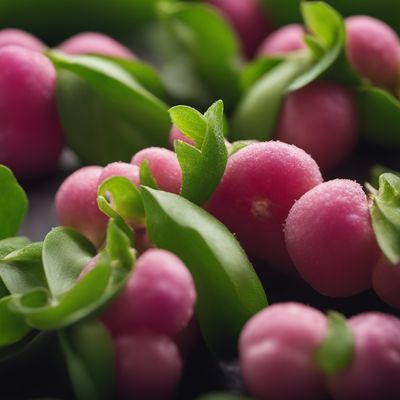
Ingredient
Jerusalem artichokes and similar-
The Versatile Tubers: Unveiling the Delights of Jerusalem Artichokes and Similar Varieties
Jerusalem artichokes, also known as sunchokes, are small, knobby tubers with a thin, brown skin and a crisp, white flesh. They have a nutty, slightly sweet flavor with hints of artichoke, and their texture is similar to that of a potato. Other similar tubers, such as Chinese artichokes and yacon, share similar characteristics, offering a crunchy texture and a subtly sweet taste.
Origins and history
Jerusalem artichokes are native to North America and were cultivated by Native Americans long before European settlers arrived. They were introduced to Europe in the 17th century and gained popularity as a food source during times of famine. Chinese artichokes, also known as crosnes, originated in China and have been cultivated for centuries. Yacon, native to the Andes region of South America, has a long history of cultivation by indigenous peoples.
Nutritional information
These tubers are a good source of dietary fiber, providing about 2 grams per 100 grams. They are also low in calories, with approximately 73 calories per 100 grams, making them a suitable choice for those watching their calorie intake.
Allergens
Jerusalem artichokes and similar tubers are not commonly associated with allergens, but individuals with a known allergy to sunflower seeds may experience cross-reactivity due to their shared family (Asteraceae).
How to select
When selecting Jerusalem artichokes and similar tubers, look for firm, unblemished tubers with a smooth skin. Avoid any that are soft, shriveled, or have moldy spots. Choose tubers that are relatively uniform in size for even cooking.
Storage recommendations
Jerusalem artichokes and similar tubers should be stored in a cool, dark place, such as a root cellar or the refrigerator. They can be kept for up to two weeks when stored properly. Avoid washing them before storage to prevent moisture buildup.
How to produce
Amateur gardeners can grow Jerusalem artichokes and similar tubers by planting the tubers in well-drained soil in a sunny location. They require minimal care and can be harvested in the fall when the foliage dies back. Chinese artichokes and yacon can also be grown in a similar manner.
Preparation tips
Jerusalem artichokes can be enjoyed raw, sliced thinly and added to salads for a crunchy texture. They can also be roasted, sautéed, or boiled until tender. To prevent discoloration, soak them in lemon water before cooking. Chinese artichokes can be stir-fried or blanched, while yacon is often eaten raw or used in salads and desserts.
Culinary uses
Jerusalem artichokes and similar tubers can be used in a variety of culinary applications. They can be roasted and served as a side dish, pureed into soups, or added to stews and stir-fries for extra flavor and texture. They can also be pickled or used in gratins and casseroles.
Availability
Jerusalem artichokes are commonly available in North America, Europe, and some parts of Asia. Chinese artichokes are more commonly found in Asian markets, while yacon is primarily cultivated and consumed in South America.
More ingredients from this category

Pale-leaf sunflower
The Delicate Beauty of the Sunflower's Pale-Leaf Sibling

Mashua
The Vibrant And Versatile Mashua: A Hidden Gem in the Culinary World

Jerusalem artichokes
The Versatile Tubers

Oca
The Vibrant And Versatile Oca: A Hidden Gem in the Culinary World

Tuberous peas
The Hidden Gem: Unveiling the Tuberous Pea

Crosnes
The Delicate Tubers